الحَمْدُ لِلّٰہِ رَبِّ الْعٰلَمِیْنَ وَ الصَّلٰوۃُ وَالسَّلَامُ عَلٰی سَیِّدِ الْمُرْسَلِیْنَ ط
اَمَّا بَعْدُ فَاَعُوْذُ بِاللّٰہِ مِنَ الشَّیْطٰنِ الرَّجِیْم ِ ط بِسْمِ اللہ الرَّحْمٰنِ الرَّ حِیْم ط
On the authority of Sayyiduna Jabir رَضِىَ اللهُ عَـنْهُ, it is narrated that the Holy Prophet صَلَّى الـلّٰـهُ عَلَيْهِ وَاٰلِهٖ وَسَلَّم said: Salah is the key to Paradise, and purity is the key to Salah. (Musnad Ahmad, vol. 5, pp. 103, Hadees 14668) Before going to offer Salah, there are a few obligations.Ghusl and Wudu are among them.
For Ghusl, the following three acts must be performed:
If there is a strong opinion about a newly reverted Muslim that he will offer Salah after learning it (For example, you know that he was already inclined towards Islam and was willing to offer Salah, or he has come only to learn about Islam, or his condition makes you have a strong opinion of him that he will start performing worship), then you should tell him the method of Salah etc., as well Otherwise, at least invite him to learn the rulings of Shari’ah. You should ask him to visit the new-Muslim website. Law 21: A non-Muslim male or female is regarded as Junub [needing ritual bath]. If they embrace Islam, then Ghusl is Wajib upon them. However, if they had already made Ghusl before accepting Islam or through some way water had passed over their entire body then all they need to do is to sniff water into the nostrils up to the soft nasal bone and this will be sufficient, as this is the one thing that the unbelievers are not able to do. Drinking huge gulps of water will also fulfil the requirement of rinsing the mouth hand if this too hasn’t been done yet, then this must be fulfilled as well. However, it is Mustahab [commendable] after accepting Islam to perform the entire Ghusl. (Bahar-e-Shari’at, vol. 1, pp. 324, summarised)
1.Rinsing the mouth: The method of rinsing the mouth is to pass water in the mouth over every part and every cavity from the lips to the end of the throat.
2.Sniffing water into the nose: One has to sniff water in such a way that the nose is washed up to the end of the soft bone i.e. up to the start of the hard bone. This can only be done by sniffing water upwards, but you mustn't sniff to such an extent that the water enters your brain since it is harmful and none of the rulings of Islam causes harm to the human body.
3.Pouring water over the whole external body: It is essential to pass water on each and every part of the apparent body from the hair of the head up to the soles of the feet. There are some body organs which may remain unwashed if special care is not taken, and Ghusl will not be valid.
Note: By doing Ghusl, Wudu is also performed provided there is no such matter which invalidates Wudu. (A little detail of these points is mentioned ahead.)
My First Salah:
Five Salahs: There are five Salahs throughout the day and night.
1.Fajr (before sunrise)
2.Zuhr (in the afternoon)
3.‘Asr (in the late afternoon)
4.Maghrib (after sunset)
5.‘Isha (at night)
Note :
Salah timings can be seen on Salah calendar. In addition, you can also see them through Dawat-e-Islami’s website as well as Prayer Times app
Now, understand the details of five Salahs
There are different Rak’aat in each Salah. Some of them are Fard. Some of them are Wajib, and some of them are Sunnah Muakkadah. The details are as follows:
| 1 | Fajr | 2 Sunnah and 2 Fard |
| 2 | Zuhr | 4 Sunnah, 4 Fard and 2 Sunnah |
| 3 | Asr | 4 Fard |
| 4 | Maghrib | 3 Fard and 2 Sunnah |
| 5 | Isha | 4 Fard, 2 Sunnah and 3 Witr |
Note :
Apart from them, there are a few Sunnah Ghayr Muakkadah and Nawafil in these Salahs as well. You may read their details in the book ‘Laws of Salah’.
Before offering Salah, you must check the following things:
1.One must be in the state of Wudu and Ghusl and the clothes and body must be clean.
2.One must be fully dressed.
3.The face must be towards the direction of Qiblah.
4.Time of Salah has to have begun.
5.One must have the intention of Salah that one is about to offer.
Note :Its details can be read from the book of Salah.
Let’s come to offer Salah:
The very first point: Men have to offer Fard Salah at the Masjid behind an Imam. However, there are some people for whom it is not necessary to come to the Masjid. If we offer Fard Salah behind an Imam, it will also be convenient for us. However, women are supposed to offer Salah individually.
Remember: When we come to the Masjid, we must not run, laugh, shout or talk about worldly matters.
The second point: There are two things in Salah:
1.What to recite in Salah?
2.How to offer Salah?
1.What to recite in Salah?
Well,there are many things to be recited in Salah, but there are five things which are necessary to be recited.
1.Takbeer: اَللّٰہُ اَکْبَر
2.Surah Al-Fatihah:
اَلۡحَمۡدُ لِلّٰہِ رَبِّ الۡعٰلَمِیۡنَ ۙ﴿۱﴾ الرَّحۡمٰنِ الرَّحِیۡمِ ۙ﴿۲﴾مٰلِکِ یَوۡمِ الدِّیۡنِ ؕ﴿۳﴾اِیَّاکَ نَعۡبُدُ وَاِیَّاکَ نَسۡتَعِیۡنُ ؕ﴿۴﴾اِہۡدِ نَا الصِّرَاطَ الۡمُسۡتَقِیۡمَ ۙ﴿۵﴾صِرَاطَ الَّذِیۡنَ اَنۡعَمۡتَ عَلَیۡہِمۡ ۙ۬غَیۡرِ الۡمَغۡضُوۡبِ عَلَیۡہِمۡ وَلَا الضَّآلِّیۡنَ ٪﴿۷﴾
3.Reciting some verses after Surah Al-Fatihah. There is some detail in it. For example we will recite:
اَلرَّحۡمٰنُ ۙ﴿۱﴾ عَلَّمَ الۡقُرۡاٰنَ ؕ﴿۲﴾ خَلَقَ الۡاِنۡسَانَ ۙ﴿۳﴾
4.Tashahhud ( اَلتَّحِیَّات):
اَلتَّحِيَّاتُ لِلّٰهِ وَالصَّلَوٰتُ وَالطَّیِّبٰتُط اَلسَّلاَمُ عَلَيْكَ اَيُّهَاالنَّبِیُّ وَرَحْمَةُ اللّٰهِ وَبَرَکَاتُهٗط اَلسَّلاَمُ عَلَيْنَاوَعَلٰی عِبَادِ اللّٰهِ الصّٰلِحِيْنَ﴿﴾اَشْهَدُاَنْ لَّآاِلٰهَ اِلَّااللّٰهُ وَاَشْهَدُ اَنَّ مُحَمَّدًا عَبْدُهٗ وَرَسُوْلُهٗ ﴿﴾ط
5.At the time of ending Salah: اَلسَّلام
Note:The Holy Quran and other things (i.e. Arabic Du’as etc.) have to be recited correctly. They will be taught by a reciter or a good teacher of the Quran. For this purpose, contact Madrasa-tul-Madinah Online quranteacher. In addition, you can also take help from the new Muslim website.
2.How to offer Salah?
Method of offering two Rak’aat Salah for men (the method for women is mentioned at the end)
1.Make a firm intention in your heart of the Salah that you are about to offer. For example, ‘I intend to offer two Rak’aat for Fard Fajr Salah.’Now,raise both hands making thumbs touch the earlobes while standing. While uttering اَللّٰہُ اَکْبَر, fold them below the navel.It is called Qiyam.

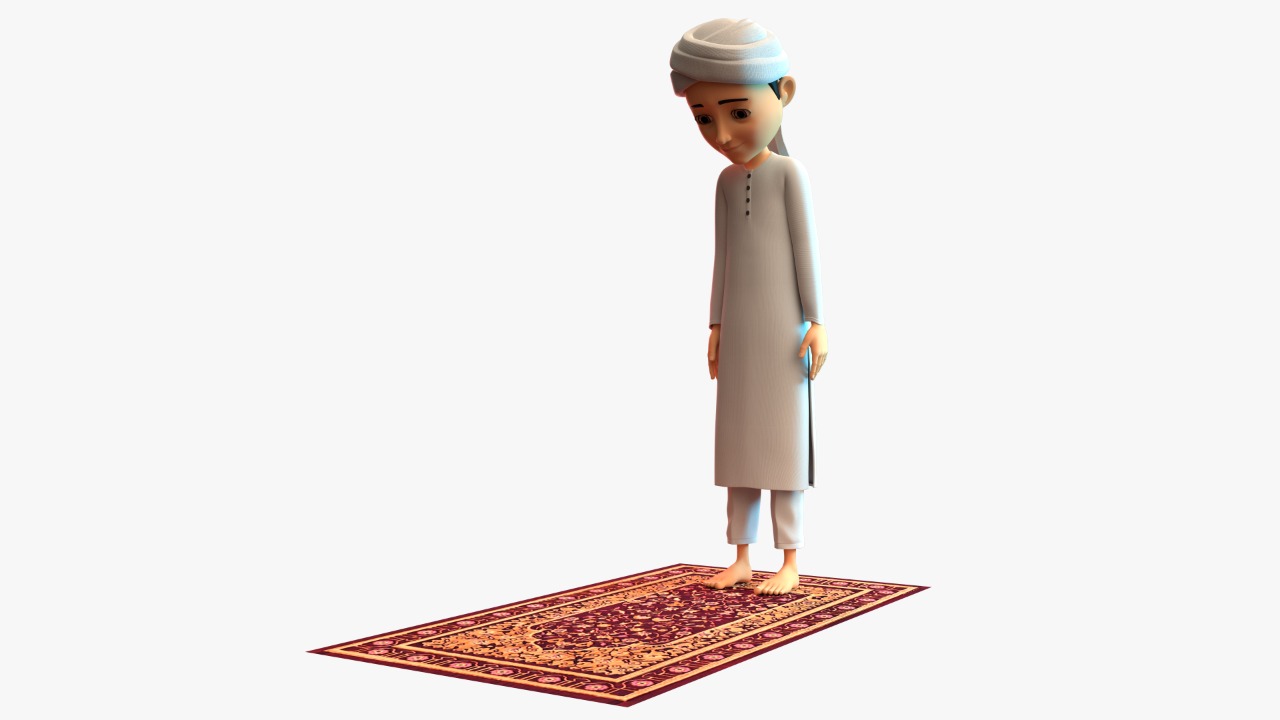

2.Now, recite the complete Surah Al-Fatihah
اَلْحَمْدُ لِلّٰہِ رَبِّ الْعٰلَمِیْن
Then, recite three short verses. You can recite
اَلرَّحۡمٰنُ ۙ﴿۱﴾ عَلَّمَ الۡقُرۡاٰنَ ؕ﴿۲﴾ خَلَقَ الۡاِنۡسَانَ ۙ﴿۳﴾
3.Men are supposed to offer Fard Salah behind the Imam of a Masjid [with congregation]. Even if somebody hasn’t memorised all this (i.e. Qira’at), his Salah will still be valid as we are not supposed to recite it while following the Imam
Law :
(Apart from the third and fourth Rak’aat of Fard Salah,) reciting Surah Al-Fatihah i.e. every single verse of it (in every Rak’at of every Salah) is Wajib. Leaving a single verse or even a single word is considered as a missing of Wajib. (Bahar-e-Shari’at, vol. 1 pp. 517)
Law :
(Apart from the third and fourth Rak’aat of Fard Salah, in every Rak’at of every Salah) it is Wajib to recite one other short Surah [along with Surah Fatihah], such as Surah اِنَّاۤ اَعْطَیۡنٰکَ الْکَوْثَرَ , or three short Ayah of the Qur’an such as
ثمَّ نَظَرَ﴿ۙ۲۱﴾ ثُمَّ عَبَسَ وَ بَسَرَ﴿ۙ۲۲﴾ ثُمَّ اَدْبَرَ وَ اسْتَکْبَرَ﴿ۙ۲۳﴾ [Surah 74, Ayah 21-23], or to recite one or two Ayahs which are equivalent to three short Ayah. (Bahar-e-Shari’at, vol. 1 ,pp. 517)
Law :
The first Jama’at (congregational prayer) of the Masjid is Wajib (compulsory) upon a sane, Baaligh (who has reached the age of puberty), free (everyone is free now) man who is able to offer Salah with Jama’at [congregation]. The one who misses Jama’at even once without a valid reason is a sinner.
(Durr-e-Mukhtar, vol. 2, pp. 340, 341, Ghuniyyah, pp. 582)

4.If you offer Salah individually and you don't know all these things by heart, then you can recite only one verse (e.g. اَلْحَمْدُ لِلّٰہِ رَبِّ الْعٰلَمِیْن ) after memorising it. And then, recite اَللّٰہُ اَکْبَر a few times (e.g. 15 times). But, remember that meanwhile you have to memorise the complete Surah Al-Fatihah and three verses as soon as possible.
Law :
When the Imam makes recitation, be it aloud or softly, the Muqtadi should remain silent at this time (i.e. it is Wajib not to do Qira’at). (Bahar-e-Shari’at, vol. 1, pp. 519) (Remember, Islamic sisters will offer Salah individually.)
Law :
It is Fard to recite one verse in the first two Rak’aat of Fard Salah and all the Rak’aat of Sunan, Nawafil and Witr. (It means without doing so, Salah will be invalid.) (Fatawa Razawiyyah, vol. 6, pp. 347)
Law :
Mufti Ahmad Yar Khan Na’eemi رَحْمَةُ اللهِ عَلَيْه has said: If somebody doesn’t know the Quran by heart at all, then he should recite the following in Salah:
’’سُبْحٰنَ اللّٰہِ وَالْحَمْدُ لِلّٰہِ وَلَا اِلٰہَ اِلَّا اللّٰہُ وَاللّٰہُ اَکْبَر‘‘
Islamic scholars have said:
A newly converted Muslim who has not memorised the Holy Quran yet, should recite ’’سُبْحٰنَ اللّٰہِ وَالْحَمْدُ لِلّٰہِ وَلَا اِلٰہَ اِلَّا اللّٰہُ وَاللّٰہُ اَکْبَر‘‘ in Salah instead of the Quran. (Mirat-ul-Manajih, vol. 2, pp. 27)
Note :
If you don’t know even a single verse but know this Tasbih by heart, then you can recite it until you memorise a verse of the Quran. However, memorising some verses
(اَلْحَمْدُ لِلّٰہِ رَبِّ الْعٰلَمِیْن or ثُمَّ نَظَرَ)
is much easier than memorising this Tasbih.
Law :
To stand for the duration of Fard Qira’at is Fard and for the duration of Wajib Qira’at, is Wajib. (Bahar-e-Shari’at, vol. 1, pp. 510)
Note :
If you have recited one verse, even then, Wajib Qiyam (i.e.to stand for the duration of reciting Surah Al-Fatihah and another Surah) will remain necessary.
It is mentioned in Fatawa Amjadiyyah: If there is a person who can't recite Arabic due to being Arabic illiterate, Qira’at is not Fard upon him. Instead of Qira’at, whatever Zikr he does is sufficient. (Fatawa Amjadiyyah, vol. 2, pp. 97; summarised)
Note :
Whatever is recited in Salah must be recited in such a way that you are able to hear yourself.
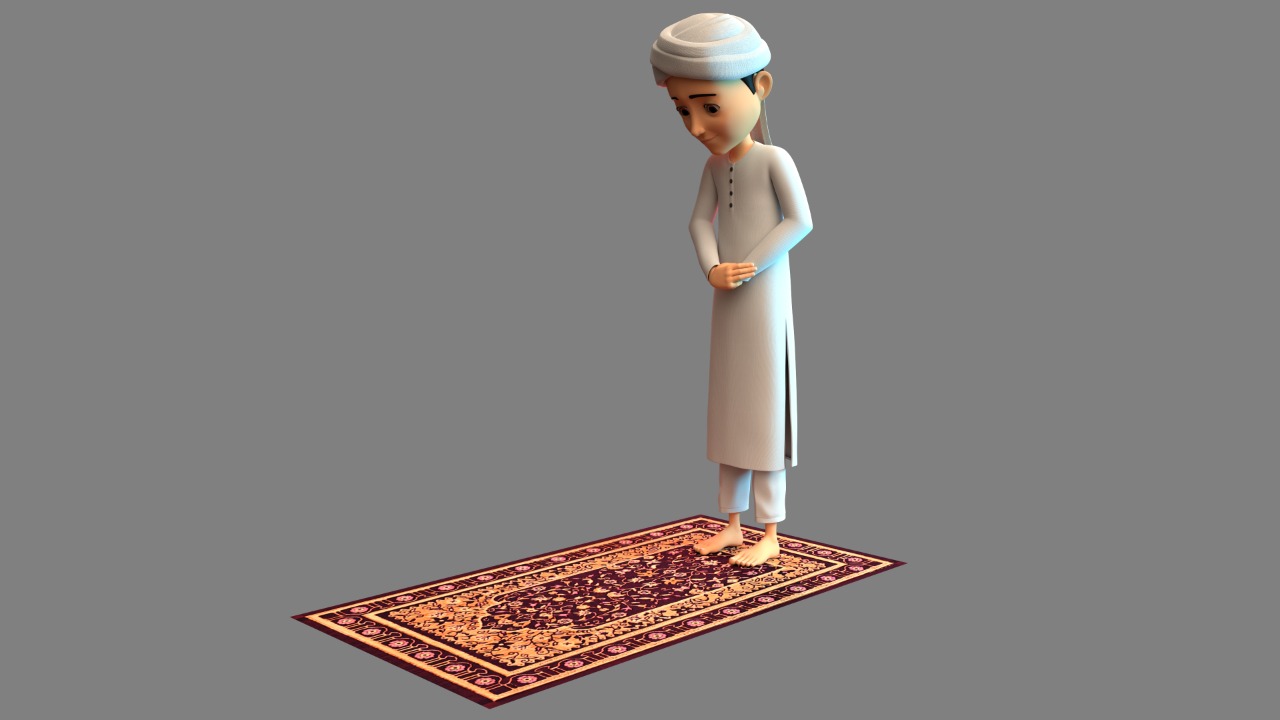

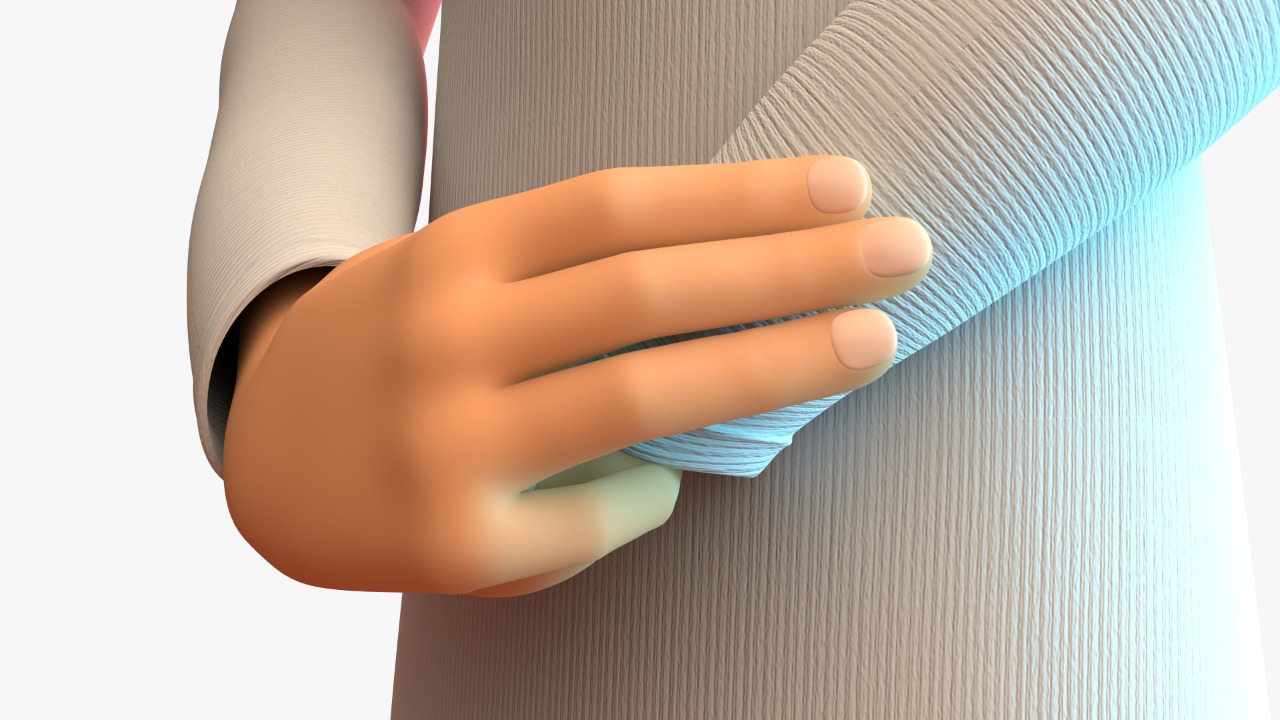
5.Then, while saying ‘ اَللّٰہُ اَکْبَر’, bow down and grasp your knees with your hands (It is called Ruku)
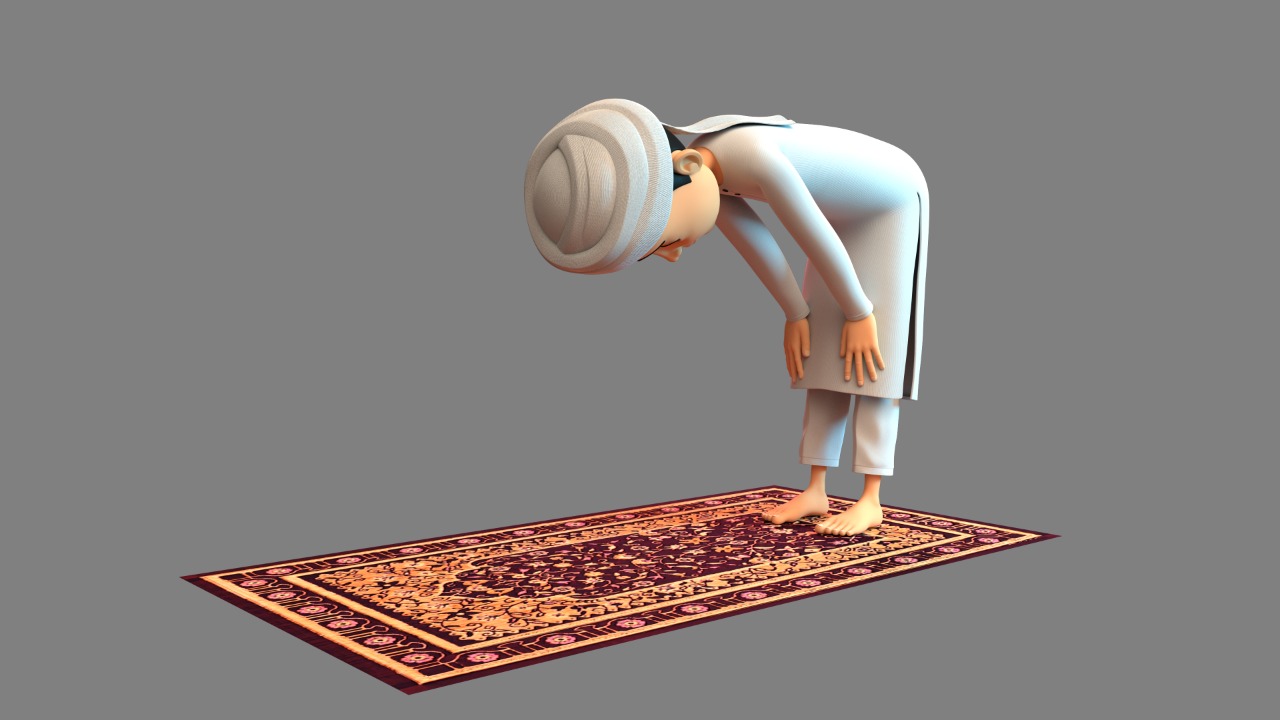
6.Now, recite ‘ اَللّٰہُ اَکْبَر’ three times.

7.Now, while saying ‘ اَللّٰہُ اَکْبَر’, stand upright. Then, keep silent at least for the duration of saying ‘ اَللّٰہُ اَکْبَر’ once.

8.Following that, get close to the ground while saying ‘ اَللّٰہُ اَکْبَر’

9.After doing so, plant your forehead and nose firmly on the ground. (It is called Sajdah)

10.The tiptoes of both feet or at least three tiptoes of both feet should be placed firmly on the ground

11.Now, recite ‘ اَللّٰہُ اَکْبَر’ three times.

12.Now, sit down while saying ‘ اَللّٰہُ اَکْبَر’ and after sitting properly, remain seated for the duration of saying ‘ اَللّٰہُ اَکْبَر’ once.


The Commentator of Bukhari رَحْمَةُ اللّٰهِ عَلَيْه has mentioned in its footnote: For a person who doesn’t know the Quran by heart, standing for the duration of Fard Qira’at (i.e. the Qira’at which is Fard to recite) is Fard and for the duration of Wajib Qira’at (i.e. the Qira’at which is Wajib to recite), is Wajib. At that time,it is better to do Zikr by saying ‘سُبْحٰنَ’ or لَا اِلٰہَ اِلَّا اللّٰه or any other Zikr than standing silent.
Law :
It is Wajib (i.e. necessary) to memorise (complete) Surah Al-Fatihah and a Surah (or three short Ayahs or a Ayah which is equivalent to three short Ayahs). (Durr-e-Mukhtar, vol. 2, pp. 315)
13.Now, again go towards the ground as you did before, while saying ‘ اَللّٰہُ اَکْبَر’.

14.Now, recite ‘ اَللّٰہُ اَکْبَر’ three times.

15.Then, stand upright, saying ‘ اَللّٰہُ اَکْبَر’.


16.And as you did before, (reciting Surah Al-Fatihah, then reciting any Surah, then grasping your knees (i.e. to do Ruku), then standing, then staying for a while, then going to the ground, then planting the forehead, nose and tiptoes of both feet firmly on the ground (i.e. to do Sajdah), then remaining seated for a while and then going to the ground as you did before) do it like that once again.



17.After two Rak’aat, one mustn’t stand up. In fact, one should keep sitting.


18.Now, recite complete Attahiyyaat. If you don’t know it by heart, then for a little while, recite ‘ اَللّٰہُ اَکْبَر’ (e.g. 15 times). But, remember that meanwhile you have to memorise the complete Attahiyyat ( اَلتَّحِیَّات) as soon as possible.


Law :
It is Fard to sit after completing the Rak’at of Salah for the duration, wherein one is able to recite the entire Attahiyyaat, in other words, up to ‘رَسُوْلُہ’i.e. his Salah will be invalid without it). (Bahar-e-Shari’at, vol. 1, pp. 515)
Law :
To recite the Tashahhud is Wajib in both Qa’dahs (i.e. after the second Rak’at and last Rak’at of every Salah). (Durr-e-Mukhtar, vol. 2, pp. 196)
Law :
Sajdah-e-Sahw (Sajdah done at the end of Salah to compensate for any unintentional mistake) becomes Wajib if somebody forgets any part of Tashahhud in any Qa’dah. (Bahar-e-Shari’at, vol. 1, pp. 519)
19.After Attahiyyaat, say ( اَلسَّلَام )' after turning the face to the right.

20.Then, after turning the face to the left, say ( اَلسَّلَام ).

Congratulations! Your two Rak’aat Salah has been completed. Remember: This is your first Salah, so for simplicity, we have left out many things, amongst which there are some things that may be skipped and the Salah still remains valid and there are some things that we have left that make Salah invalid if skipped, but if they are skipped due to an excuse then the Salah remains valid. Moreover, remember that there are certain things in Salah that are obligatory and without them Salah is invalid. There are some acts (for example, talking to someone, eating or drinking during Salah, etc.) that if they are done during Salah, Salah will become invalid. Similarly, certain things in Salah are such that if they are skipped on purpose, Salah will have to be repeated. Similarly, certain acts (for example, playing with the beard, body or clothes) are such that if they are done during Salah, Salah will have to be repeated. You can find its details in the book ‘Laws of Salah’ and ‘Blessings of Salah’.
There is a narration in the book ‘Tirmizi’ that the Holy Prophet صَلَّى الـلّٰـهُ عَلَيْهِ وَاٰلِهٖ وَسَلَّم taught Salah to a villager of Arab and said: If you have memorised the Quran, then recite it, otherwise, praise Allah عَزَّوَجَلَّ, Say ‘ اَللّٰہُ اَکْبَر’ and say لَا اِلٰہَ اِلَّا اَللّٰہُ and then perform Ruku. (Tirmizi, vol. 1, pp. 325, Hadees 302)
In the commentary of this Hadees, Shaykh Muhaqqiq has written: State the oneness of Allah عَزَّوَجَلَّ . From this point, we come to know that he who doesn’t know the Quran by heart, should recite سُبْحٰنَ اللّٰہِ وَالْحَمْدُ للّٰہِ وَلَا اِلٰہَ اِلَّا اللّٰہُ وَ اَللّٰہُ اَکْبَر instead of the Quran, such as, the person who embraces Islam, but couldn’t find enough time to memorise the Quran till the time of Salah comes, has to do Zikr, Tasbih and Tahleel. (Ashi’a-tul-Lam’aat, vol. 1, pp. 389)
What to do if Rak’aat of Salah are more than two?
Salahs throughout the day and night which we learnt about comprise of 2, 3, and 4 Rak’aat. The method of two Rak’aat Salah has been explained. Now, the method of four Rak’aat Salah is going to be discussed.
The Method of four Rak’aat Salah:
21.The method of two Rak’aat Salah will remain the same from point no. 1 to point no. 15. However, you must not perform Salam in the four Rak’aat Salah as you did in the two Rak’aat Salah
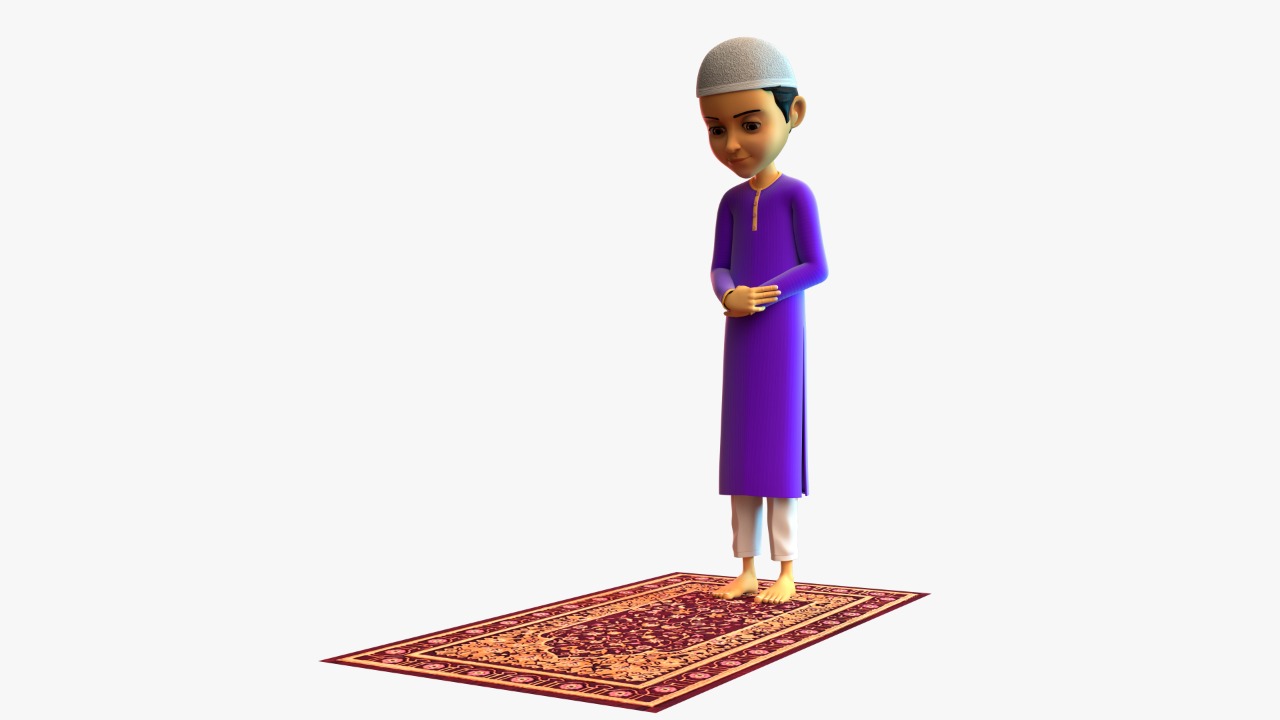

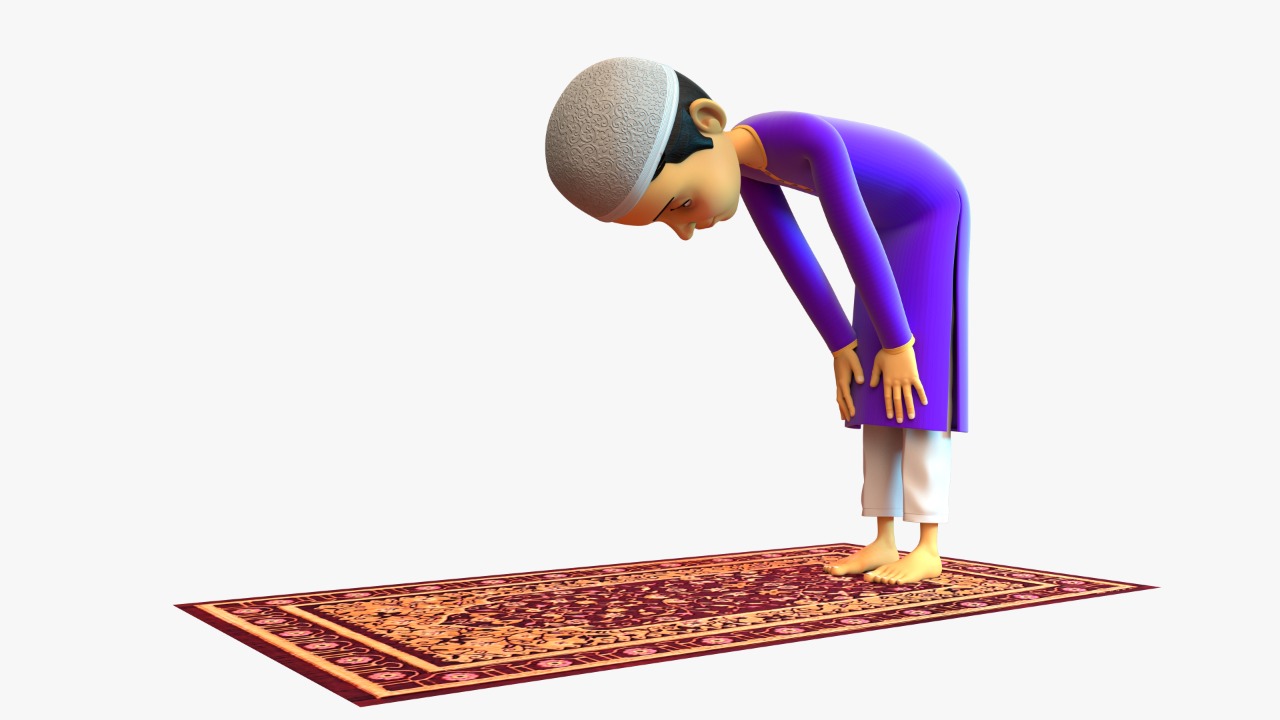

22.Now, stand upright, saying ‘ اَللّٰہُ اَکْبَر’



23.Now, like the two Rak’at Salah, offer the third and fourth Rak’at. (i.e. stand upright, saying ‘ اَللّٰہُ اَکْبَر’ for the third Rak’at. Then, recite Surah Al-Fatihah, then recite any Surah, then grasp your knees (i.e. do Ruku), then stand, then stay for a while, then go to the ground planting the forehead, nose and tiptoes of both feet firmly on the ground (i.e. do Sajdah), then sit and keep sitting for a while and then go to the ground as you did before, then offer one more Rak’at like this.)





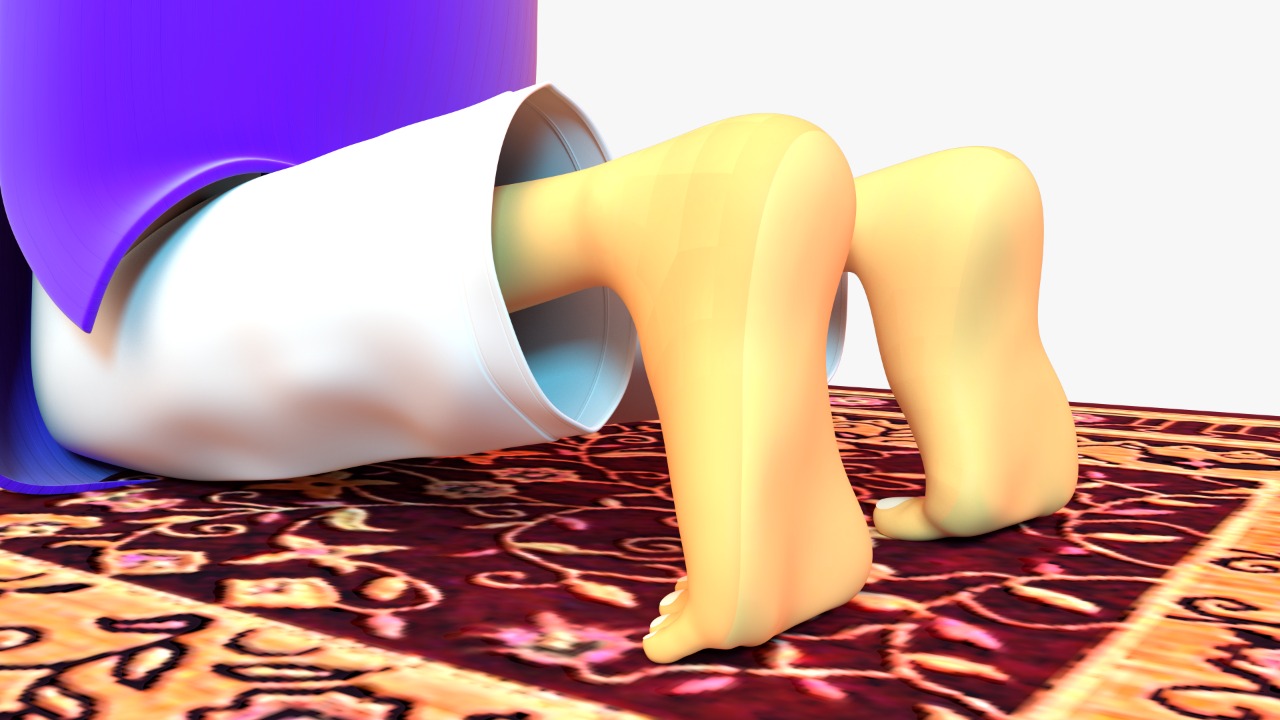

24.Now, sit in the fourth Rak’at like you sat in the second Rak’at.
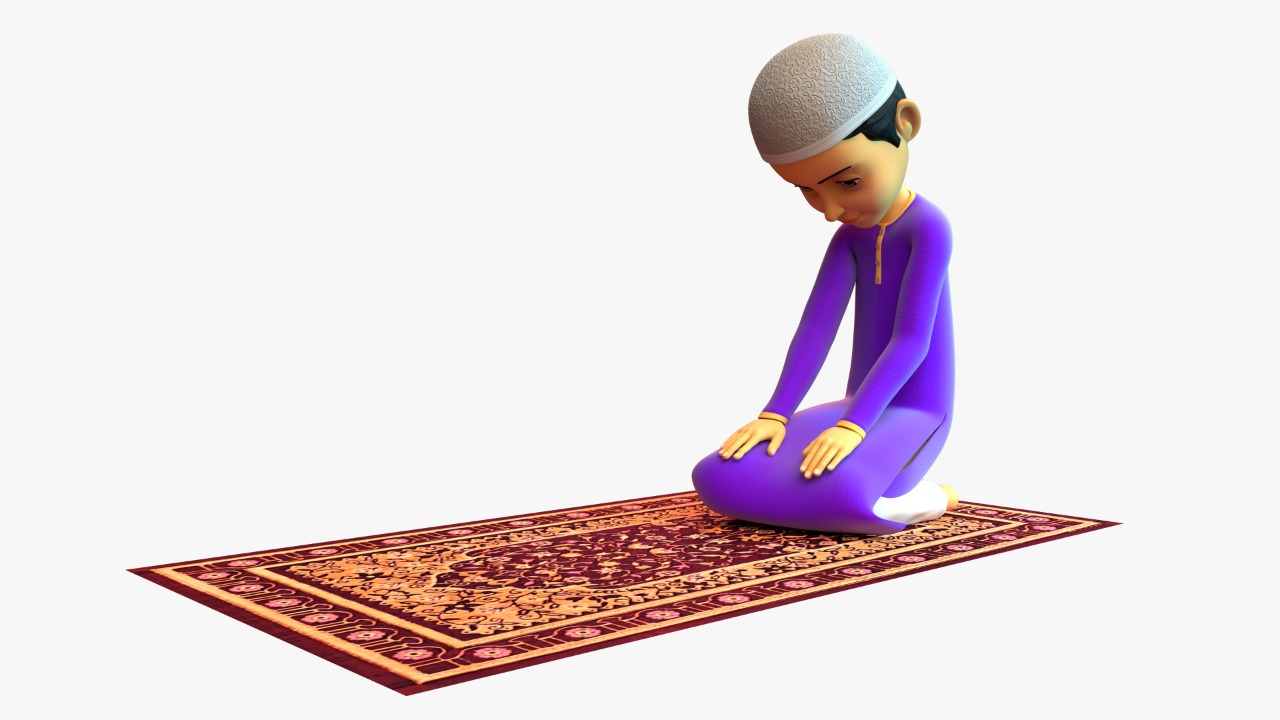
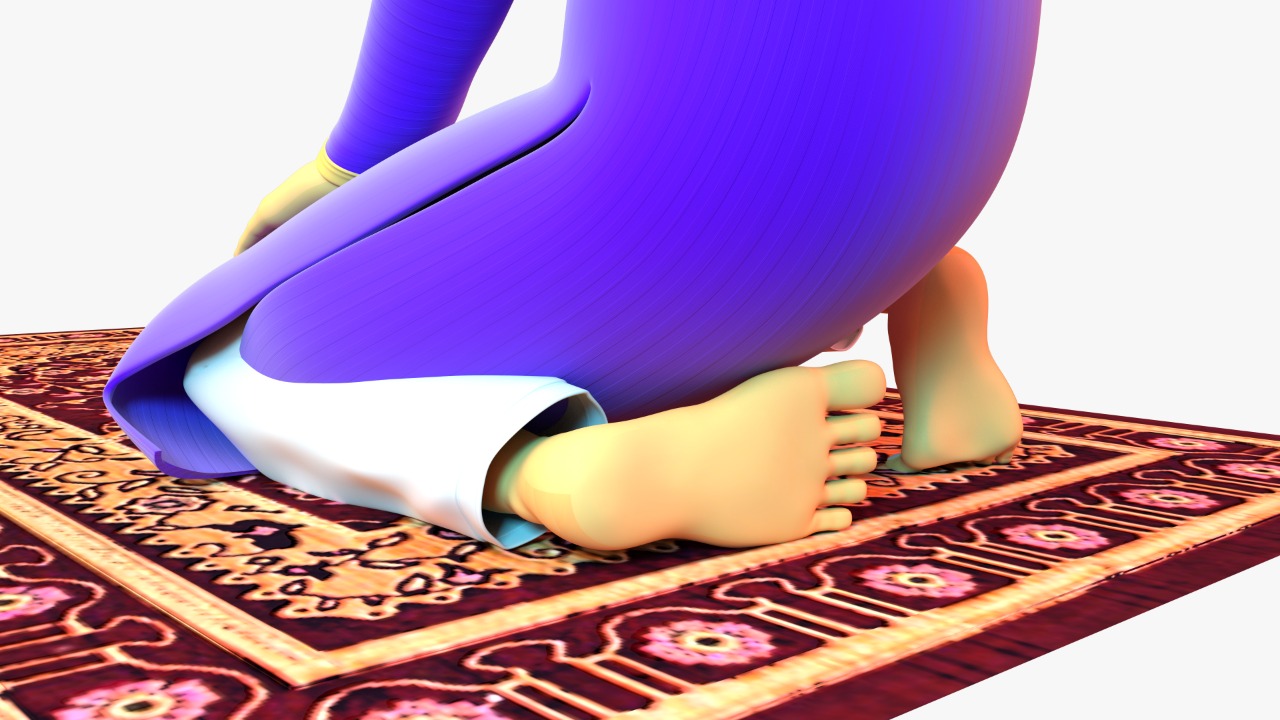
25.Now, recite complete Attahiyyaat. If you haven’t memorised it, then for a little while, recite ‘ اَللّٰہُ اَکْبَر’ (e.g. 15 times). But, remember that meanwhile you have to memorise the complete Attahiyyat as soon as possible.


26.After Attahiyyaat, say ( اَلسَّلَام ) after turning the face to the right.

27.Then, after turning the face to the left, say ( اَلسَّلَام ).

Three Rak’aat Salah:
Salahs throughout the day and night which we learnt about have two different types of three Rak’aat Salah:
(1) Maghrib Salah
(2) Witr (which is offered after Fard and Sunnah of Isha Salah).
The method of three Rak’aat Fard Salah:
The method of two Rak’aat Salah will remain the same from point no. 1 to point no. 15. However, you must not say Salam in the three Rak’aat Salah as you did in the two Rak’aat Salah.




28.Now, stand upright, saying ‘ اَللّٰہُ اَکْبَر’



29.Now, like the two Rak’aat Salah, offer the third Rak’at. (i.e. stand upright, saying ‘ اَللّٰہُ اَکْبَر’ for the third Rak’at. Then, recite Surah Al-Fatihah, then recite any Surah, then grasp your knees (i.e. do Ruku’), then stand, then stay for a while, then go to the ground, planting the forehead, nose and tiptoes of both feet firmly on the ground (i.e. do Sajdah), then sit and keep sitting for a while and then go to the ground as you did before)







30.Now, sit in the third Rak’at like you sat in the second Rak’at.


31.Now, recite complete Attahiyyat ( اَلتَّحِیَّات). If you don’t know it, then for a little while, recite ‘ اَللّٰہُ اَکْبَر’ (e.g. 15 times). But, remember that meanwhile you have to memorise the complete Attahiyyat as soon as possible.


32.After Attahiyyat, say ‘As-Salaam’ (اَلسَّلام) after turning the face to the right.

33.Then, after turning the face to the left, say ‘As-Salaam’ (اَلسَّلام).

The method of three Rak’aat Witr Salah:
34.The method of two Rak’aat Salah will remain the same from point no. 1 to point no. 15. However, you must not say Salaam in the three Rak’aat Salah as you did in the two Rak’aat Salah.




35.Now, stand upright, saying ‘ اَللّٰہُ اَکْبَر’



36.Now, recite Surah Al-Fatihah and another Surah in the third Rak’at, like you recited in the second Rak’at. If you haven’t memorised these Ayahs, then you may recite only one Ayah after memorising it, (for example اَلْحَمْدُ لِلّٰہِ رَبِّ الْعٰلَمِیْن, and recite ‘ اَللّٰہُ اَکْبَر’ for a while (e.g. 15 times). But, remember that meanwhile you have to memorise the complete Surah Al-Fatihah and three verses as soon as possible.



37.Then raise your hands up to the ears and place them below the navel while reciting ‘ اَللّٰہُ اَکْبَر’. This is called Qiyam.

38.Now, recite once ‘اَللّٰہُمَّ اغْفِرْ لِیْ’ (learn this sentence by heart)
39.Then, while saying ‘ اَللّٰہُ اَکْبَر’, bow and grasp your knees with your hands (It is called Ruku’).

40.Now, recite ‘ اَللّٰہُ اَکْبَر’ thrice.

41.Now, while saying ‘ اَللّٰہُ اَکْبَر’, stand upright. Then, keep silent at least for the duration of saying ‘ اَللّٰہُ اَکْبَر’ once
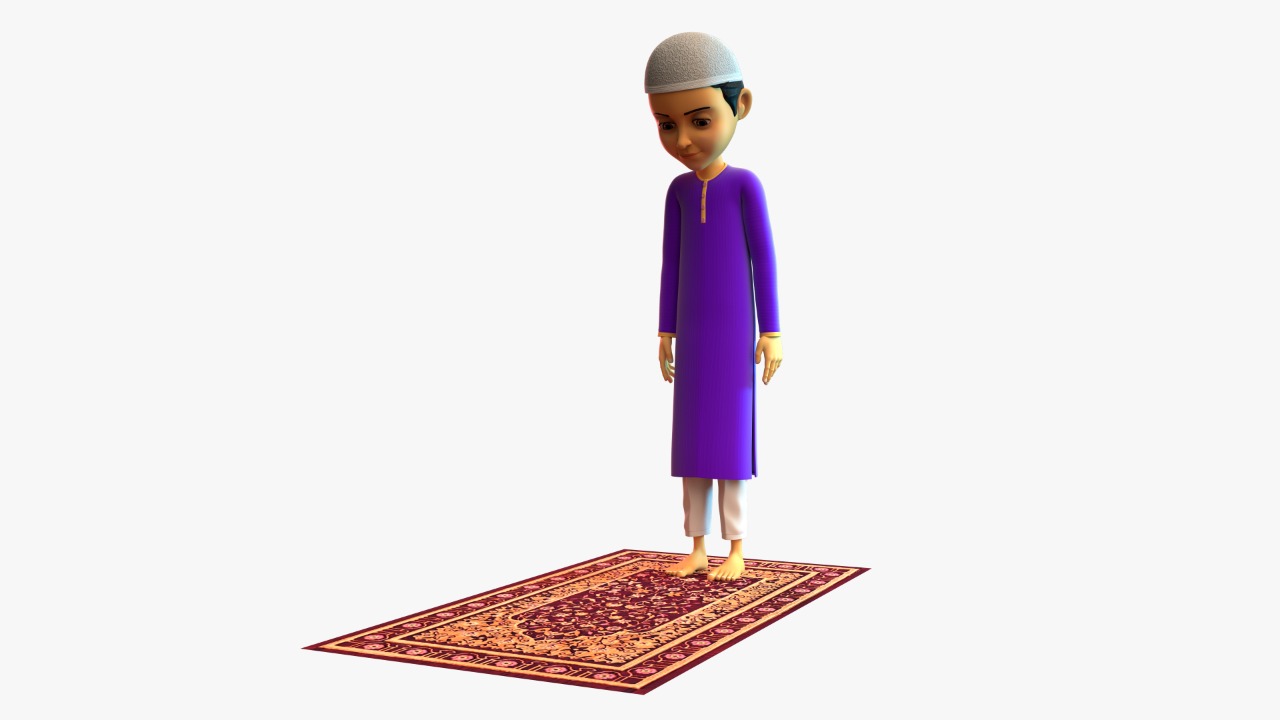
42.Following that, get close to the ground while saying ‘ اَللّٰہُ اَکْبَر’

43.After doing so, plant your forehead and nose firmly on the ground. (It is called Sajdah)

44.All the tiptoes of both feet or at least three tiptoes of both feet should be placed firmly on the ground

45.Now, recite ‘ اَللّٰہُ اَکْبَر’ three times

46. Now, sit down while saying ‘ اَللّٰہُ اَکْبَر’ and after sitting properly, keep on sitting for the duration of saying ‘ اَللّٰہُ اَکْبَر’ once.


47.Now again while reciting ‘ اَللّٰہُ اَکْبَر’ go towards the ground as you did before.

48.Now, recite ‘ اَللّٰہُ اَکْبَر’ three times.

49.Now, keep sitting upright while reciting ‘ اَللّٰہُ اَکْبَر’


50.Now, recite complete Attahiyyaat. If you don’t know it by heart, then for a little while, recite ‘ اَللّٰہُ اَکْبَر’ (e.g. 15 times).But, remember that meanwhile you have to memorise the complete Attahiyyaat as soon as possible.


51.After Attahiyyaat, say ( اَلسَّلَام )' after turning the face to the right.

52.Then, after turning the face to the left, say ( اَلسَّلَام ).

Congratulations! Your Salahs of an entire day have been completed.
Differences in the Salah of Islamic Sisters:
There is no difference in the method of Wudu, Ghusl, the Rak’aat of Salah and the recitations of Salah, but a few things have some differences:
1.Islamic Sisters do not have to follow an Imam when offering Salah.
2.It is mandatory for Islamic sisters to cover their entire body except their face, palms of their hands and their feet's instep. If the hands are visible up to the wrist and the feet are exposed up to the ankles, even then Salah will be considered valid.


3.There is also a slight difference in the way sisters have to offer Salah (the way they have to sit and stand). They should learn the method of two Rak’aat Salah and then offer all Salahs accordingly.
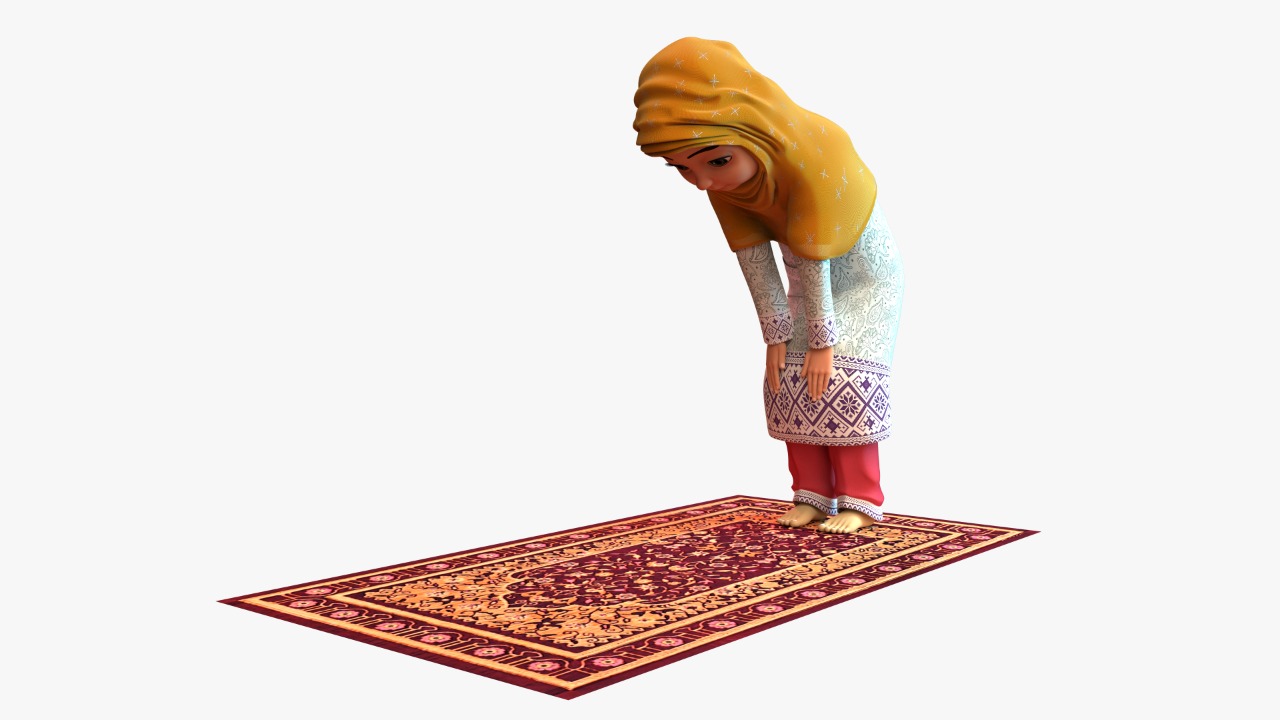
Method of two Rak’aat Salah for Islamic Sisters:
1.(Make intention in the heart of the Salah you are about to offer. For example: I intend to offer two Rak’aat Salah Fard for Fajr) then raise your hands within the cover of your scarfs up to the shoulders and place them on the chest while reciting ‘ اَللّٰہُ اَکْبَر’ (It is called Qiyam).

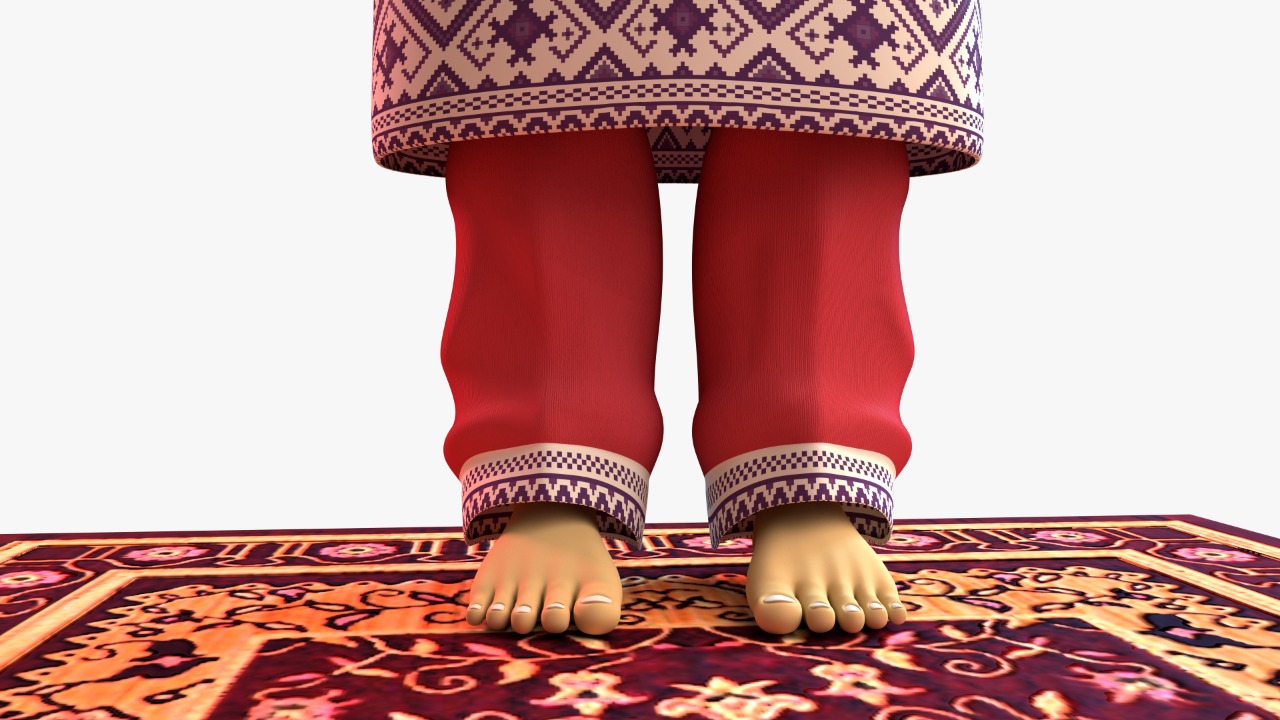

Now recite complete Surah Al-Fatihah (اَلْحَمْدُ لِلّٰہِ رَبِّ الْعٰلَمِیْن) and then three small Ayahs, for example:
اَلرَّحۡمٰنُ ۙ﴿۱﴾ عَلَّمَ الۡقُرۡاٰنَ ؕ﴿۲﴾ خَلَقَ الۡاِنۡسَانَ ۙ﴿۳﴾
2.If you haven’t memorised these Ayahs then you may recite only one Ayah after memorising it, (اَلْحَمْدُ لِلّٰہِ رَبِّ الْعٰلَمِیْن), and recite ‘ اَللّٰہُ اَکْبَر’ a few times, (e.g. 15 times). Remember! Meanwhile you have to memorise the complete Surah Al-Fatihah and 3 Ayahs as soon as possible.
Note: Whatever is supposed to be recited in Salah must be uttered in such a way that you are able to hear yourself.


3.Then, while saying ‘ اَللّٰہُ اَکْبَر’, bend only to such an extent that your hands reach your knees.
Now, place your hands softly on your knees (It is called Ruku’).

4.Now, recite ‘ اَللّٰہُ اَکْبَر’ three times.

5.Now, while saying ‘ اَللّٰہُ اَکْبَر’, stand upright. Then, keep silent at least for the duration of saying ‘ اَللّٰہُ اَکْبَر’ once.

6.Following that, get close to the ground while saying ‘ اَللّٰہُ اَکْبَر’.
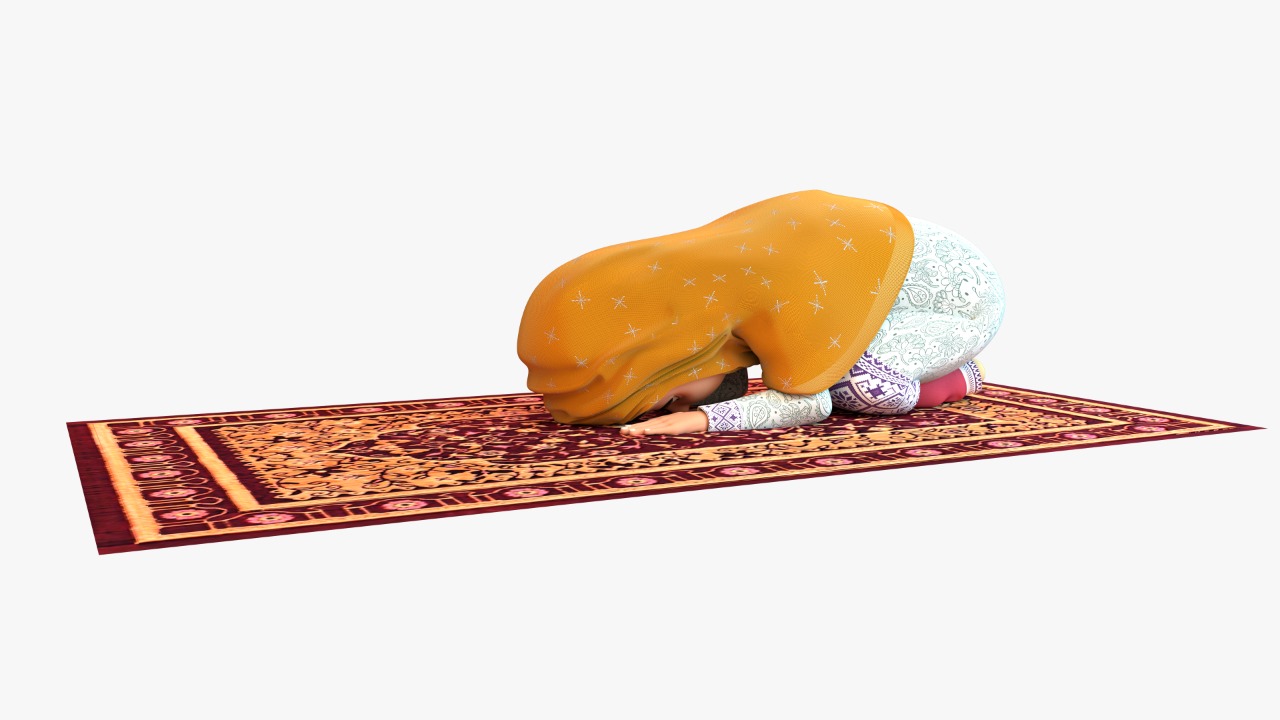
7.Keep your body parts close together, i.e. arms touching sides, belly touching thighs,
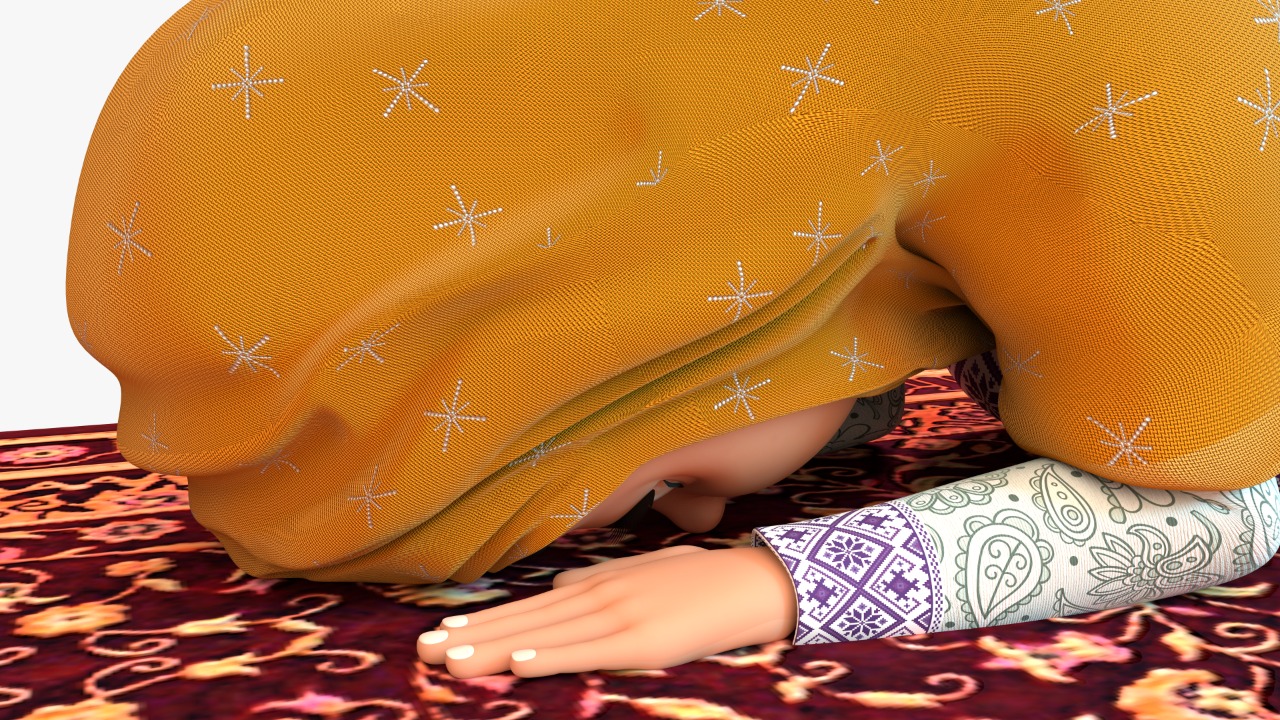
8.You should draw your feet out towards the right side.
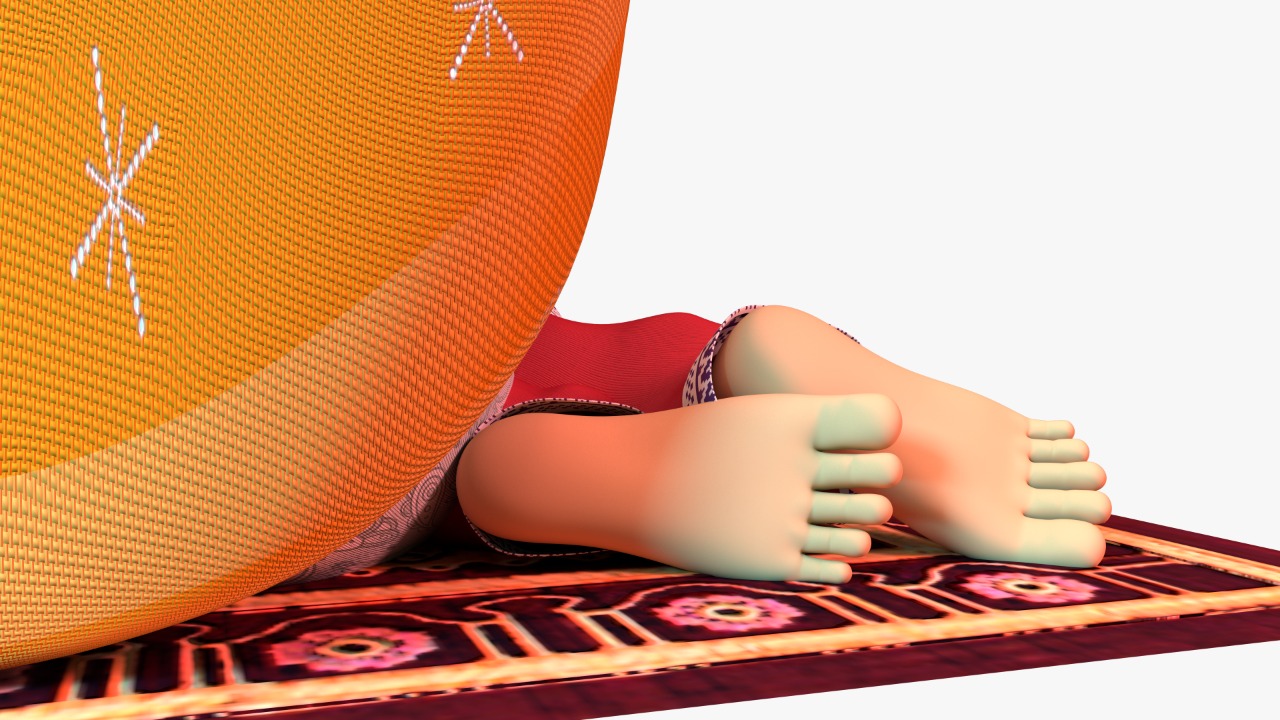
9.Now, recite ‘ اَللّٰہُ اَکْبَر’ three times.

10.Now, sit down while saying ‘ اَللّٰہُ اَکْبَر’ and draw your feet out towards the right side.
After you sit properly, keep on sitting for the duration of saying ‘ اَللّٰہُ اَکْبَر’ once.

11.Now recite ‘ اَللّٰہُ اَکْبَر’ again and bow towards the ground as you did before.

12.Now, recite ‘ اَللّٰہُ اَکْبَر’ three times.

13.Now stand upright while reciting ‘ اَللّٰہُ اَکْبَر’.

14.Repeat actions from 2–12 as before.




15.This time you must keep sitting instead of standing at the end of second Rak’at


16.Recite Attahiyyaat ( اَلتَّحِیَّات) completely. If you haven’t memorised it yet then you may recite ‘ اَللّٰہُ اَکْبَر’ for a while (e.g. 15 times), but remember you have to learn the complete Attahiyyaat by heart.


17.After reciting Attahiyyat, turn you face towards the right side and say اَلسَّلَام ُ عَلَیْکُم.

18.Then after turning the face towards the left side, say اَلسَّلَام ُ عَلَیْکُم.

Congratulations! You have successfully completed your first two Rak’aat Salah.
Do remember that there are some actions that are mandatory to be performed for the Salah to become valid, and there are some actions that if they are done (for example, talking to someone, eating or drinking etc.) during Salah, the Salah will become invalid. In the same way there are a few things that if omitted intentionally, Salah will have to be offered again. Similarly, there are some actions (e.g. fiddling with clothes, body or beard) that if committed during Salah will require it to be offered again. You can find its details in the book ‘Laws of Salah’ and ‘Faizan-e-Namaz’.
Method of performing two Rak’aat Salah following the Imam (for men only):
1.Make the intention of Salah you have to offer, for example: I intend to offer two Rak’at Salah, Fard, for the time of Fajr, following this Imam) (uttering these words with the tongue is better). Then raise your hands up to the ears and place them below the navel while reciting ‘ اَللّٰہُ اَکْبَر’. This is called Qiyam.
2.After the Imam says ‘ اَللّٰہُ اَکْبَر’ you should say the same in a voice that should be heard only by you and place the hands below the navel (Remember, you must not be so loud that your voice disturbs others). Men have to offer congregational Salah following the Imam of Masjid and while doing so one must not recite Surah Al-Fatihah, and other Surahs (i.e. one must not do the recitation while following an Imam), therefore you must stand silently. Note: In the Salah of Zuhr and ‘Asr the Imam does not recite the Quran loudly. Even then we will remain silent.
3.When the Imam says ‘ اَللّٰہُ اَکْبَر’, and goes for Ruku’ you must also do the same while saying ‘ اَللّٰہُ اَکْبَر’, bow and grasp your knees with your hands (It is called Ruku’).
4.Now, recite ‘ اَللّٰہُ اَکْبَر’ three times.
5.When the Imam says ‘ سَمِعَ اللّٰہُ لِمَنْ حَمِدَہ’, and stands upright, you must also do so, while saying ‘ اَللّٰہُ اَکْبَر’. While standing upright, do not recite anything; instead, stay in the same condition for 2 to 3 seconds and keep your hands hanging.
6.When the Imam says ‘ اَللّٰہُ اَکْبَر’ and goes for Sajdah, follow him and bow towards the ground while saying ‘ اَللّٰہُ اَکْبَر’ and plant your forehead and nose firmly on the ground (It is called Sajdah).
7.The tiptoes of both feet or at least three tiptoes of both feet should be placed firmly on the ground.
8.Now, recite ‘ اَللّٰہُ اَکْبَر’ three times.
9.Now, when the Imam says ‘ اَللّٰہُ اَکْبَر’ and sits down, you should also sit down while saying ‘ اَللّٰہُ اَکْبَر’.
10.After sitting properly, keep on sitting for the duration of saying ‘ اَللّٰہُ اَکْبَر’ once.
Note:
Wherever it is instructed to wait for the duration of the recitation of ‘ اَللّٰہُ اَکْبَر’ once, it is necessary to stay for the duration required to say a Tasbih. We will do so even if the imam proceeds forward in Salah.
11.When the imam says ‘ اَللّٰہُ اَکْبَر’ and performs Sajdah, You must follow him and get close to the ground while saying ‘ اَللّٰہُ اَکْبَر’ and plant your forehead and nose firmly on the ground.
12.Now recite ‘ اَللّٰہُ اَکْبَر’ three times.
Note:
Wherever it is instructed to recite thrice, you should remember that if the Imam performs another Rukn of Salah, then we will follow him regardless of whether reciting three Tasbih has been completed or not. However, staying for the duration of one Tasbih is still Wajib.
13.When the imam stands upright while saying ‘ اَللّٰہُ اَکْبَر’ you should follow him while saying ‘ اَللّٰہُ اَکْبَر’.
14.Now you must repeat 2–12 the same as before for the second Rak’aat.
15.After the second Sajdah of the second Rak’aat, when the Imam sits after saying ‘ اَللّٰہُ اَکْبَر’, you must also do the same i.e. you should sit while saying ‘ اَللّٰہُ اَکْبَر’.
16.Recite Attahiyyaat so softly that only your own ears can hear it. If you haven’t learnt it yet then you may recite
‘ اَللّٰہُ اَکْبَر’ for a while (e.g. 15 times,) but remember meanwhile you have to memorise the complete Attahiyyaat soon as possible.
Note:If we haven’t recited Attahiyyaat completely and the Imam has proceeded forward, then we will still recite the complete Attahiyyaat.
Point:If we are to offer the Fard Salah comprising of 3 or 4 Rak’aat like Maghrib, Zuhr, ‘Asr and ‘Isha, then we will perform the 3rd and 4th Rak’at as we performed the 1st and 2nd Rak’at (Details already discussed).
Remember: The Imam doesn’t recite loudly in the third and fourth Rak’aat, even then we will keep silent.
17.When the Imam says Salaam towards the right side we must rotate our neck towards the right side and do the same.
18.When the Imam says Salaam towards the left side we must rotate the neck towards the left side in the same way as before and recite Salaam ( اَلسَّلَام ُ عَلَیْکُم).
One important thing:
It is mandatory to be in the state of Wudu before every Salah.
Method of Wudu:
1.Rinsing your mouth three times, making sure that water reaches all parts of the mouth.
2.Sniffing water thrice [up to the soft part of the nose] (but it should be done in such a way that the water would not enter your brain as it is harmful).
3.Washing the entire face [from the top of your forehead, i.e. the hairline, to below your chin and from one earlobe to the other] thrice.
4.Washing both forearms including the elbow three times properly.
5.After taking fresh water, wet your hands with it. Then, wipe them on the head without touching anything else.
6.Washing both feet including the ankles thrice properly.
Remember that this is your first Wudu, so for simplicity we have left out some things that may be skipped. It means Wudu is valid even without them, but you will get more reward if you do them. Moreover, remember that there are certain things in Wudu that are obligatory and without them Wudu is invalid. There are some acts which invalidate Wudu (for example, answering the call of nature in the toilet, breaking wind and blood flowing out of the body). Similarly, invalidity of Ghusl causes the invalidity of Wudu (for example, having a wet dream, or ejaculation of semen with lust while being awake, or having intercourse and termination of menses for a woman). Remember, both Wudu and Ghusl are necessary for Salah. You can find its details in the book ‘Laws of Salah’. Similarly, if your clothes become impure (e.g. a piece of cloth is polluted with urine or blood), then you will have to purify them.
Method of purifying clothes:
If there is any kind of impurity on clothes, be it viscous impurity e.g. stool, dung, blood etc. or non-viscous impurity e.g. urine, etc., wash the clothes in both cases to such an extent that the colour and smell etc. of the impurity go away. And you become certain that impurity has been washed away and now, the clothes are pure.
Last point:
Every Friday, men have to offer Jumu’ah Salah behind the Imam like the way two Rak’aat Salah is offered. Before that, they have to listen to the Khutbah delivered by the Imam while being silent. Apart from that, two Eid Salahs once in a year and Taraweeh Salah are also offered. You can find its details in the book ‘Laws of Salah’
Note :
Islamic sisters are neither supposed to offer Jumu’ah Salah nor Eid Salah. However, they also have to offer Taraweeh Salah individually. May Allah عَزَّوَجَلَّ enable us to forever remain in the fold of Islam!

